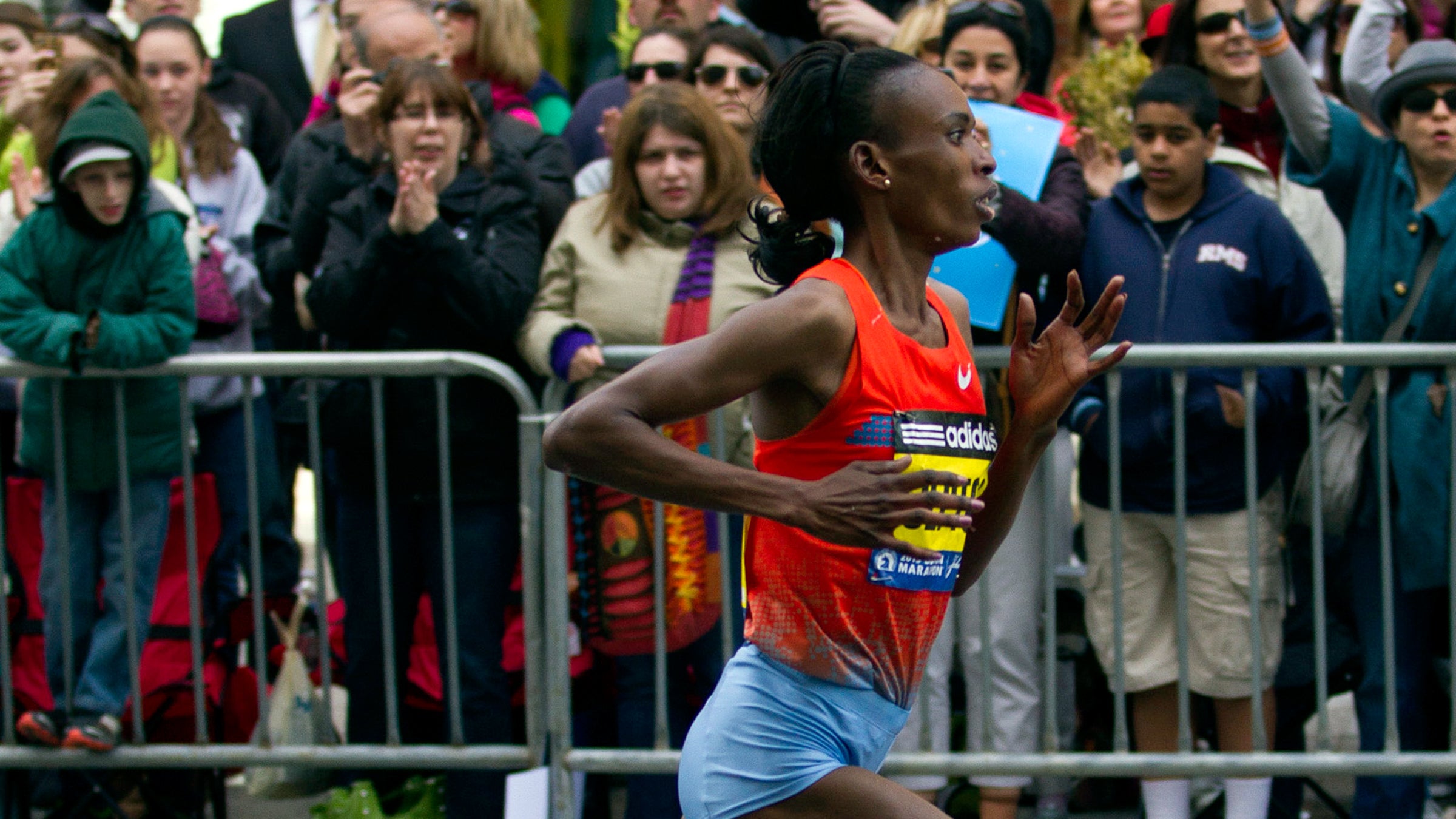In the wake of Boston and Chicago Marathon champion Rita Jeptoo’s failed doping tests and doping investigations into dozens of other Kenyan athletes, has announced harsher penalties for any athletes caught using performance-enhancing drugs. Agents enabling doping will also be punished, possibly with jail time.
Athletics Kenya president Isaiah Kiplagat that athletes will be prohibited from competing in any event without the proper registration with the federation. “If an athlete is found culpable, they will be banned in accordance with the new rules, which extend to four years,” Kiplagat said. Any agent or coach who works with three or more runners who test positive for banned substances will be slapped with a lifetime ban and a possible prison sentence. “If you’re the one who injected or found to have been contributing toward persuading the athletes to take banned substances, that’s a criminal offense,” Kiplagat said.
The BBC reports that at least 38 Kenyan athletes are believed to have failed drug tests. Jeptoo, the most high profile of the bunch, produced positive A and B urine samples for the blood-booster EPO less than two weeks before her second Chicago victory in October, . Her hearing is scheduled for Thursday; she faces a minimum two-year ban and possibly forfeiture of some of her titles.
Kiplagat that performance-enhancing drug use is on the same scale as the AIDS epidemic, and that Kenya will launch a new anti-doping agency and enact stricter in- and out-of-competition testing. The newly formed will conduct random tests and monitor athletes’ biological passports, which can show fluctuations in body chemistry and indicate drug use. Along with submitting their athletes’ blood testing reports each month, agents and coaches must register with Athletics Kenya and provide a list of all the athletes they supervise.
Another measure that Athletics Kenya plans to roll out is a prohibition on runners under 20 years old from competing in marathons and other road-running competitions.


